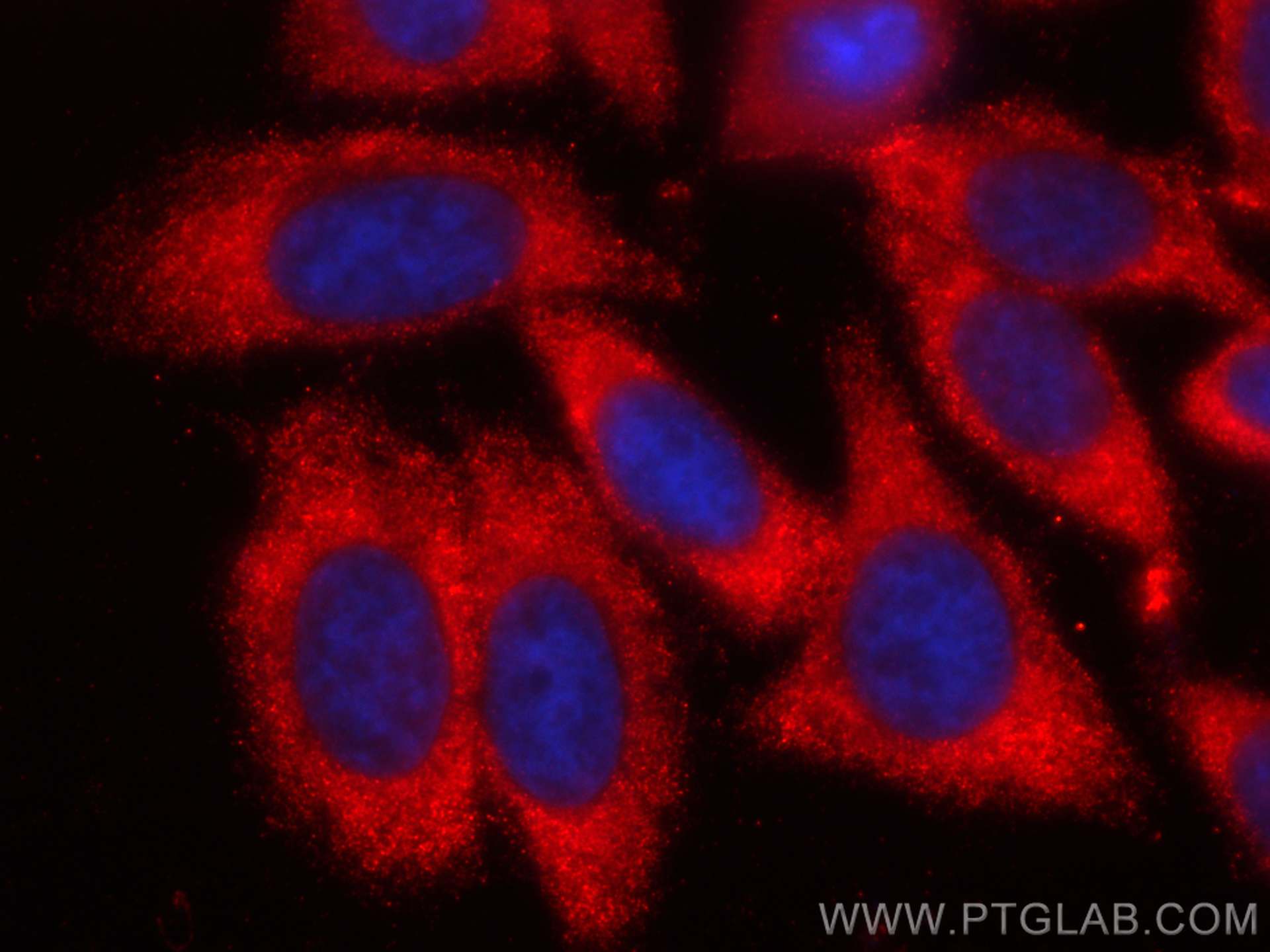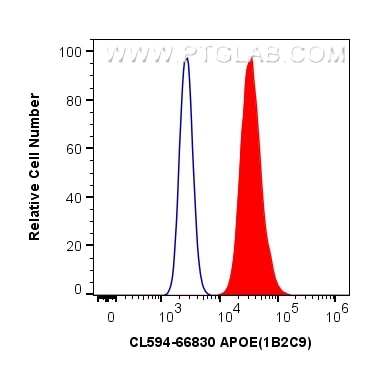Anticorps Monoclonal anti-APOE
APOE Monoclonal Antibody for FC (Intra), IF
Hôte / Isotype
Mouse / IgG1
Réactivité testée
Humain, souris
Applications
IF, FC (Intra)
Conjugaison
CoraLite®594 Fluorescent Dye
CloneNo.
1B2C9
N° de cat : CL594-66830
Synonymes
Galerie de données de validation
Applications testées
| Résultats positifs en IF | cellules HepG2, |
| Résultats positifs en cytométrie | cellules HepG2 |
Dilution recommandée
| Application | Dilution |
|---|---|
| Immunofluorescence (IF) | IF : 1:50-1:500 |
| Flow Cytometry (FC) | FC : 0.40 ug per 10^6 cells in a 100 µl suspension |
| It is recommended that this reagent should be titrated in each testing system to obtain optimal results. | |
| Sample-dependent, check data in validation data gallery | |
Informations sur le produit
CL594-66830 cible APOE dans les applications de IF, FC (Intra) et montre une réactivité avec des échantillons Humain, souris
| Réactivité | Humain, souris |
| Hôte / Isotype | Mouse / IgG1 |
| Clonalité | Monoclonal |
| Type | Anticorps |
| Immunogène | APOE Protéine recombinante Ag28186 |
| Nom complet | apolipoprotein E |
| Masse moléculaire calculée | 36 kDa |
| Poids moléculaire observé | 34-36 kDa |
| Numéro d’acquisition GenBank | BC003557 |
| Symbole du gène | APOE |
| Identification du gène (NCBI) | 348 |
| Conjugaison | CoraLite®594 Fluorescent Dye |
| Excitation/Emission maxima wavelengths | 588 nm / 604 nm |
| Forme | Liquide |
| Méthode de purification | Purification par protéine G |
| Tampon de stockage | PBS avec glycérol à 50 %, Proclin300 à 0,05 % et BSA à 0,5 %, pH 7,3. |
| Conditions de stockage | Stocker à -20 °C. Éviter toute exposition à la lumière. Stable pendant un an après l'expédition. L'aliquotage n'est pas nécessaire pour le stockage à -20oC Les 20ul contiennent 0,1% de BSA. |
Informations générales
The apolipoprotein E (APOE) is a 299-amino acid polypeptide that mediates the binding, internalization, and catabolism of lipoprotein particles, and also serve as a ligand for the LDL (APO B/E) receptor and for the specific APOE receptor (chylomicron remnant) of hepatic tissues. The very strong association of the APOE ɛ4 allele with AD risk and its role in the accumulation of amyloid β in brains of people and animal models solidify the biological relevance of APOE isoforms but do not provide mechanistic insight.
Protocole
| Product Specific Protocols | |
|---|---|
| IF protocol for CL594 APOE antibody CL594-66830 | Download protocol |
| FC protocol for CL594 APOE antibody CL594-66830 | Download protocol |
| Standard Protocols | |
|---|---|
| Click here to view our Standard Protocols |



